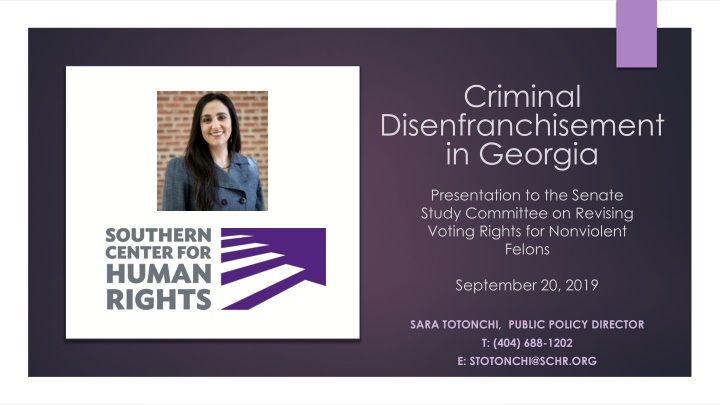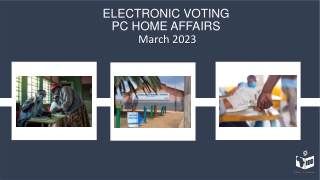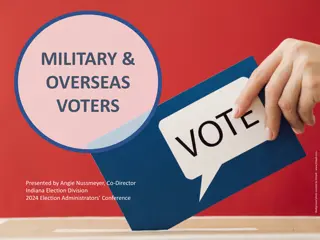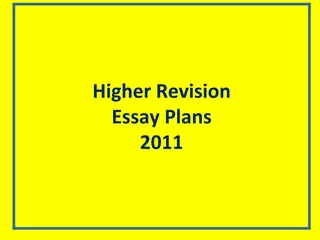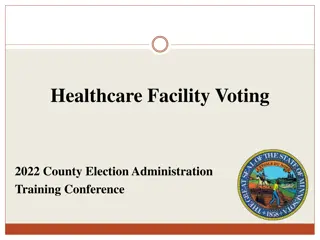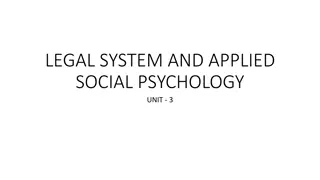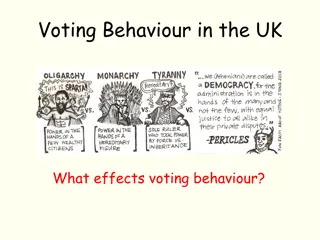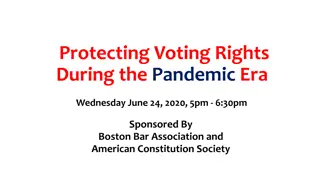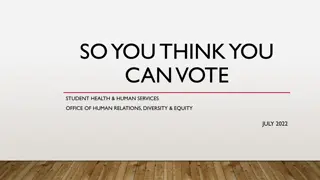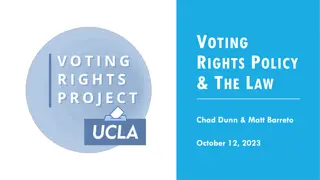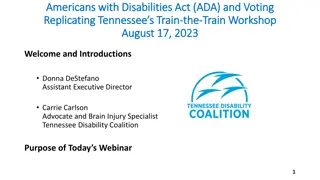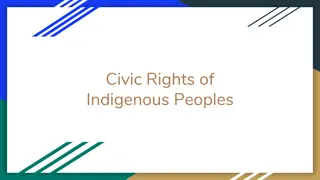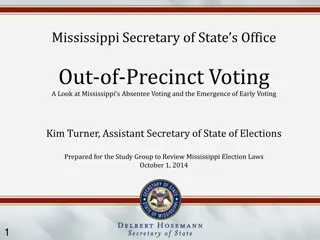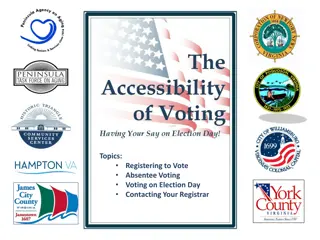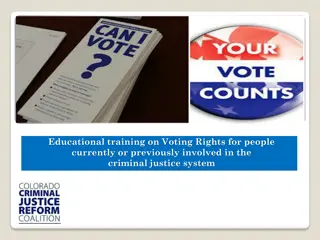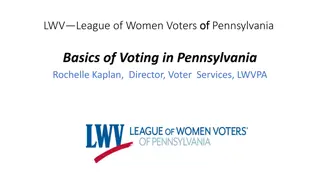Criminal Disenfranchisement in Georgia: Addressing Voting Rights for Felons
This presentation discusses the criminal disenfranchisement laws in Georgia, focusing on the challenges faced by individuals with felony convictions, proposals for reform, and the impact on recidivism rates. The Southern Center for Human Rights advocates for equality, dignity, and justice for those involved in the state's legal system.
Download Presentation

Please find below an Image/Link to download the presentation.
The content on the website is provided AS IS for your information and personal use only. It may not be sold, licensed, or shared on other websites without obtaining consent from the author.If you encounter any issues during the download, it is possible that the publisher has removed the file from their server.
You are allowed to download the files provided on this website for personal or commercial use, subject to the condition that they are used lawfully. All files are the property of their respective owners.
The content on the website is provided AS IS for your information and personal use only. It may not be sold, licensed, or shared on other websites without obtaining consent from the author.
E N D
Presentation Transcript
Criminal Disenfranchisement in Georgia Presentation to the Senate Study Committee on Revising Voting Rights for Nonviolent Felons September 20, 2019 SARA TOTONCHI, PUBLIC POLICY DIRECTOR T: (404) 688-1202 E: STOTONCHI@SCHR.ORG
The Southern Center for Human Rights is working for: Equality, Dignity, and Justice for people who are involved in the criminal legal system in Georgia.
Criminal Disenfranchisement in Georgia No person who has been convicted of a felony involving moral turpitude may register, remain registered or vote except upon completion of the sentence.
The Problems with Moral Turpitude Possible Racist Motives Vague Meaningless
Sentence Completion & Debt
Improving Access to the Ballot Reduces Recidivism
Proposals to Clarify Criminal Disenfranchisement in Georgia 1.Limit criminal disenfranchisement to a list of specific offenses 1.Allow people convicted of a disqualifying offense to be able to vote upon sentence completion regardless of outstanding criminal justice debt
